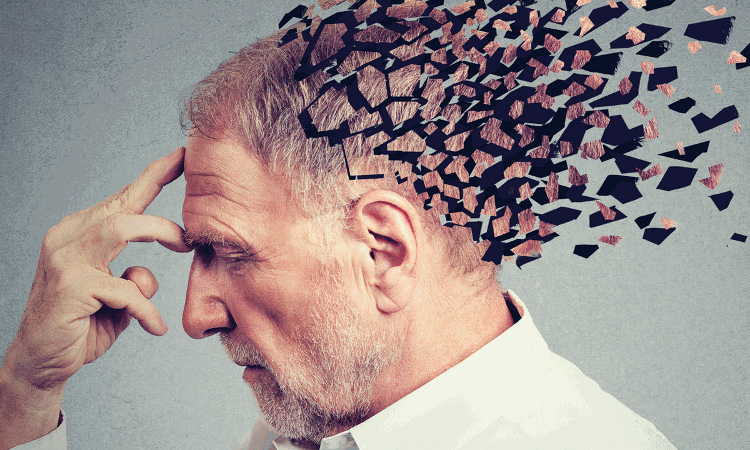- Home
- Medical news & Guidelines
- Anesthesiology
- Cardiology and CTVS
- Critical Care
- Dentistry
- Dermatology
- Diabetes and Endocrinology
- ENT
- Gastroenterology
- Medicine
- Nephrology
- Neurology
- Obstretics-Gynaecology
- Oncology
- Ophthalmology
- Orthopaedics
- Pediatrics-Neonatology
- Psychiatry
- Pulmonology
- Radiology
- Surgery
- Urology
- Laboratory Medicine
- Diet
- Nursing
- Paramedical
- Physiotherapy
- Health news
- Fact Check
- Bone Health Fact Check
- Brain Health Fact Check
- Cancer Related Fact Check
- Child Care Fact Check
- Dental and oral health fact check
- Diabetes and metabolic health fact check
- Diet and Nutrition Fact Check
- Eye and ENT Care Fact Check
- Fitness fact check
- Gut health fact check
- Heart health fact check
- Kidney health fact check
- Medical education fact check
- Men's health fact check
- Respiratory fact check
- Skin and hair care fact check
- Vaccine and Immunization fact check
- Women's health fact check
- AYUSH
- State News
- Andaman and Nicobar Islands
- Andhra Pradesh
- Arunachal Pradesh
- Assam
- Bihar
- Chandigarh
- Chattisgarh
- Dadra and Nagar Haveli
- Daman and Diu
- Delhi
- Goa
- Gujarat
- Haryana
- Himachal Pradesh
- Jammu & Kashmir
- Jharkhand
- Karnataka
- Kerala
- Ladakh
- Lakshadweep
- Madhya Pradesh
- Maharashtra
- Manipur
- Meghalaya
- Mizoram
- Nagaland
- Odisha
- Puducherry
- Punjab
- Rajasthan
- Sikkim
- Tamil Nadu
- Telangana
- Tripura
- Uttar Pradesh
- Uttrakhand
- West Bengal
- Medical Education
- Industry
Antioxidants, vitamins and carotenoids reduce risk of incident Dementia

United States: The levels of blood lutein+zeaxanthin and beta-cryptoxanthin were shown to be inversely related to incident all-cause dementia, says an article published in Neurology.
Carotenoids and Serum antioxidant vitamins may defend against age-related neurodegeneration. As a result, May A. Beydoun and colleagues investigated the links between these dietary indicators and incident all-cause and Alzheimer's disease (AD) dementia in middle-aged and older persons.
Researchers examined the associations and interactions of serum vitamins A, C, and E, as well as total and individual serum carotenoids, with incident AD and all-cause dementia using data from the third National Health and Nutrition Examination Surveys (1988–1994) and Centers for Medicare & Medicaid follow-up data. The Cox proportional hazards regression models were run.
The key findings of this study were as follows:
1. After 26 years of follow-up, serum lutein+zeaxanthin was linked with a lower risk of all-cause dementia (65+ age group), even in the lifestyle-adjusted model, but not in the SES–adjusted model.
2. For age- and sex-adjusted models, an inverse connection was found between serum beta-cryptoxanthin (per SD increase) and all-cause dementia (45+ and 65+), with the link staying robust in SES-adjusted models but weakening in successive models.
3. At lower levels of other carotenoids or antioxidant vitamins, antagonistic interactions imply that the predicted protective benefits of one carotenoid may be detected.
In conclusion, this study presents Class II evidence that blood lutein+zeaxanthin and beta-cryptoxanthin levels are inversely related to the incidence of all-cause dementia.
Over a 16-year period, researchers studied over 7,000 adults aged 45 and older and discovered that high blood levels of the antioxidants lutein, zeaxanthin, and beta-cryptoxanthin, which are found in leafy green vegetables and peas, as well as oranges and papaya, may be associated with a lower risk of dementia.
More research with time-dependent exposures and randomized trials are needed to investigate the neuroprotective benefits of dietary supplementation with specific carotenoids.
Reference:
Beydoun, M. A., Beydoun, H. A., Fanelli-Kuczmarski, M. T., Weiss, J., Hossain, S., Canas, J. A., Evans, M. K., & Zonderman, A. B. (2022). Association of Serum Antioxidant Vitamins and Carotenoids With Incident Alzheimer Disease and All-Cause Dementia Among US Adults. In Neurology (Vol. 98, Issue 21, pp. e2150–e2162). Ovid Technologies (Wolters Kluwer Health). https://doi.org/10.1212/wnl.0000000000200289
Medical Dialogues consists of a team of passionate medical/scientific writers, led by doctors and healthcare researchers. Our team efforts to bring you updated and timely news about the important happenings of the medical and healthcare sector. Our editorial team can be reached at editorial@medicaldialogues.in.
Dr Kamal Kant Kohli-MBBS, DTCD- a chest specialist with more than 30 years of practice and a flair for writing clinical articles, Dr Kamal Kant Kohli joined Medical Dialogues as a Chief Editor of Medical News. Besides writing articles, as an editor, he proofreads and verifies all the medical content published on Medical Dialogues including those coming from journals, studies,medical conferences,guidelines etc. Email: drkohli@medicaldialogues.in. Contact no. 011-43720751


